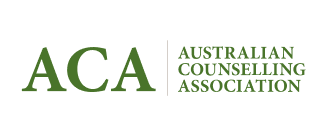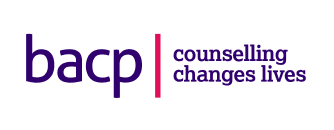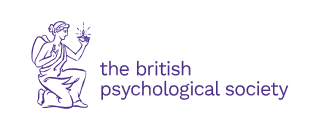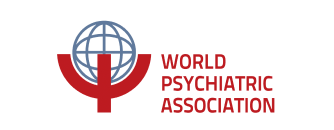Overcome depression through expert care from our trusted, qualified, experienced, and licensed psychologists in Dubai.
Key takeaways
- Depression is common and treatable.
- Symptoms include sadness, fatigue, and loss of interest.
- Different types of depression exist, like postpartum and seasonal.
- Depression treatment options include therapy, medications, and lifestyle modifications.
- Online therapy for depression is effective and accessible.
- In-person depression therapy in Dubai typically costs 700–1000 AED, while online sessions at Counsel Clinic are more affordable at 183 AED.
Depression treatment in Dubai
Treatment options for depression include therapy, medication, lifestyle changes, or a combination of them:
1. Therapy
Psychotherapy, talk therapy, or simply therapy is an effective approach to depression treatment, leading to reduced symptoms and better quality of life. It consists of talk sessions with a mental health professional.
Your therapist can employ various types of therapies depending on your needs. Some of them are:
- Cognitive Behavioral Therapy (CBT): CBT is a structured and goal-oriented form of psychotherapy that helps identify negative thoughts and behavior patterns and develop coping mechanisms to help you with your mental health challenges. CBT is effective in the treatment of mental disorders such as depression, anxiety, eating disorders, etc.
- Interpersonal Therapy (IPT): IPT is a form of talk therapy that focuses on improving your relationships with others to relieve depression symptoms. IPT involves working with your therapist for 12-16 weeks for the short-term treatment of major depressive disorder. It is a time-limited treatment conducted in 3 phases (beginning, middle, and end).
Looking for a therapist for anxiety and depression? You can start receiving depression treatment online without having to go to the psychiatrist. Counsel Clinic provides 1 on 1 talk therapy sessions at affordable rates. To learn more, book your first session today directly from the website or contact us on WhatsApp at +971525609479.
2. Medications
A psychiatrist or mental health professional may also prescribe certain medications to manage and reduce the symptoms of depression. These include:
a) Antidepressants
Antidepressants work by increasing the level of chemicals in your brain known as neurotransmitters. They are further divided into various drug classes, including:
- Selective serotonin reuptake inhibitors (SSRIs): For example, paroxetine (Paxil) and fluoxetine (Prozac).
- Tricyclic antidepressants (TCAs): For instance, amitriptyline (Elavil) and doxepin (Prudoxin)
- Serotonin-norepinephrine reuptake inhibitors (SNRIs): Such as desvenlafaxine (Pristiq) and duloxetine (Cymbalta).
b) Mood stabilizers
Mood stabilizing medications are typically not the first-line treatment for depression, but they may be prescribed in addition to antidepressants, especially if antidepressants have been ineffective in managing your symptoms.
Mood stabilizers help control extreme mood swings and prevent manic and depressive episodes. They are widely used for the management of bipolar disorder. Examples include lamotrigine (Lamictal) and carbamazepine (Tegretol).
c) Antipsychotics
Antipsychotic medications are used to treat mental disorders that involve psychosis. They are primarily used for the treatment of psychotic disorders such as schizophrenia, but can also be prescribed for depression and anxiety in cases where the symptoms are severe or resistant to treatment.
Some examples of antipsychotic medications are aripiprazole (Abilify) and risperidone (Risperdal).
d) Esketamine
Esketamine, a prescription-based nasal spray, can be prescribed for treatment-resistant depression (TRD) when at least 2 antidepressants have failed to provide relief.
Sold under various brand names, such as Spravato and Ketanest, Esketamine is an FDA-approved medication for depression, but its use has been associated with several side effects, especially with long-term use, such as dizziness, drowsiness, sedation, nausea, headaches, and dissociation.
3. Lifestyle modifications
In addition to therapy and medications, individuals with depression can significantly benefit from certain lifestyle modifications. These include:
- Regular exercise: Regular exercise keeps you in shape and is an excellent morale booster. It also keeps your mind and body engaged in something positive, keeping negative thoughts and emotions at bay.
- Healthy diet: A healthy diet nourishes the mind, body, and soul and keeps you going even on bad days. Aim to consume a mix of essential nutrients, carbohydrates, proteins, healthy fats, vitamins, minerals, and water. Try to incorporate lots of healthy fruits and vegetables, along with whole grains, nuts, seeds, lean protein, and legumes, into your diet.
- Quit smoking: Smoking and vaping are bad habits that can worsen mental health conditions such as depression rather than improve them. Quitting smoking can lead to a better mood as well as reduced anxiety and stress.
- Get adequate sleep: Getting enough sleep is synonymous with good mental and physical health. Try to get at least 7-9 hours of sleep each day and limit unhealthy urges like using your phone or drinking caffeinated beverages before bed.
Apart from lifestyle changes, we advise you to get help for depression by consulting with a qualified Dubai-based depression therapist or counselor.
What is depression?
Depression is a common but serious mental health condition that can cause a persistent feeling of sadness, self-loathing, and loss of interest in activities. It can negatively affect your personal life, including your thoughts, behaviors, relationships, and eating and sleeping habits.
Categorized as a mood disorder, depression affects an estimated 280 million people globally, around 3.8% of the world population, according to WHO estimates.
Depression can affect people of all age groups and genders. However, research shows it is more prevalent in women than men. According to the Anxiety and Depression Association of America (ADAA), women are twice as likely to develop depression as compared to men. 1 in 8 women experience some form of depression in their lifetime.
Moreover, younger adults (16-29 years) are at a greater risk of depression as compared to older adults, as per research.
What causes depression?
There are numerous probable causes of depression. Identifying the underlying cause of depression is key to its treatment and can help individuals better understand their triggers to overcome them.
The following are the common causes of depression:
- Genetics: Depression may be hereditary. If depression runs in your family, it can potentially make you more susceptible to it. However, genetics isn't the only contributing factor to depression. Psychological, physical, and environmental factors can also play a role in its development.
- Hormonal changes: Hormonal imbalances have also been linked to depression. Changes in estrogen, progesterone, and thyroid hormones can lead to mood disruptions, potentially causing you to feel low or depressed.
- Environmental factors: The environmental factors that can contribute to depression include maternal stress, bullying, perinatal complications, and traumatic events.
- Psychological factors: Depression symptoms have also been associated with psychological factors such as grief and loss, pessimism, low self-esteem, negative thoughts, loneliness, and isolation etc.
Symptoms of depression
Depression symptoms can be further categorized into psychological and physical:
Psychological symptoms
Psychological symptoms of depression can include:
- Persistently feeling sad or low.
- Loss of motivation.
- Hopelessness.
- Irritability.
- Low self-esteem.
- Tearfulness.
- Trouble concentrating.
- Restlessness.
- Suicidal thoughts.
Physical symptoms
Physical symptoms of depression can include:
- Lack of energy.
- Changes in appetite.
- Sleep disturbances.
- Weight loss.
- Headaches.
- Back pains.
- Digestive problems.
Depression is a debilitating condition, but it is treatable. At Counsel Clinic, we are simplifying depression counselling through convenient online talk sessions with top therapists in Dubai. Do not ignore the symptoms; start depression therapy and reclaim your peace and mental clarity.
Types of depression
The following are the main types of depression:
1. Major depressive disorder (MDD)
Major depressive disorder (MDD), or clinical depression, is one of the most common mental health disorders that can affect anyone. It is characterized by persistent feelings of sadness, hopelessness, and loss of interest in activities.
Depression counselling can help lessen MDD symptoms and help you heal.
2. Persistent depressive disorder (PDD)
Persistent depressive disorder (PDD), also known as dysthymia, is a form of depression with symptoms less severe than major depression, but it can last longer.
If you have persistent depressive disorder, you might experience mild to moderate depression symptoms on most days that do not go away and can last for two years or more.
3. Bipolar disorder
Bipolar disorder, formerly known as manic depression, is a serious mental illness that involves extreme shifts in moods from episodes of highs, known as mania, to lows, known as depression.
There is no cure for bipolar disorder. Treatments such as therapy and medications can help individuals better manage their symptoms.
4. Postpartum depression
Postpartum depression (PPD) is a form of depression that mothers may experience after giving birth or during pregnancy. Individuals with PPD may feel sad, hopeless, overly stressed, have difficulty sleeping, and may also find themselves crying frequently with no apparent cause.
Postpartum depression can affect your ability to take care of yourself and your baby. It can last for months or even years if not treated.
5. Seasonal affective disorder (SAD)
During the cold, bleak winter months, when sunlight is scarce and the days are shorter, people tend to feel sad, withdrawn, and depressed.
Seasonal affective disorder (SAD) is a type of depression that people experience during specific seasons, most notably during the fall and winter months.
SAD has symptoms similar to major depression; however, they tend to improve in the spring and summer months. Seasonal affective disorder is similar to winter blues but with more serious symptoms.
If you have SAD, depression therapy and related treatments can be worthwhile.
6. Premenstrual dysphoric disorder (PMDD)
Women may experience severe depression symptoms, tension, irritability, and extreme mood changes a week or two before their period. This condition is known as premenstrual dysphoric disorder (PMDD).
PMDD should not be mistaken for PMS (premenstrual syndrome), which presents with similar symptoms but is, however, milder and less severe than PMDD.
Prevalence of depression in the UAE
Depression is one of the most common mental health disorders in the UAE, much like it is worldwide. Several studies on depression prevalence have been conducted in various areas of the UAE, including one in Dubai, two in Sharjah, and two in Al Ain.
The depression prevalence rates in the UAE, according to these studies, range from 12.5 to 28.6%. If you are struggling with depression, do not hesitate to seek help.
What does depression feel like?
Here are some real-life descriptions of what depression feels like by those affected by the condition:
- "Not wanting to do anything. Not wanting to be anything. Not wanting to be at all."
- "You feel hopeless."
- "Like you're in a black hole of despair."
- "Not being able to sleep, but feeling so tired."
- Sometimes it feels like the air around you is too heavy to breathe."
- "In a nutshell, apathy and fatigue."
- "It feels like nothing matters."
Am I depressed?
Everyone tends to feel sad at times, but if you are frequently feeling unhappy, depressed, in a low mood, with a diminishing interest in daily activities, you might have depression.
To find out if you have depression, you can talk to a therapist or counselor online through Counsel Clinic, and get the appropriate treatment for depression in Dubai, remotely, through online counselling sessions.
Another way to find out if you have depression is through a depression test or quiz.
How long does depression last?
Depression affects everyone differently, with varying severities and durations. Clinical depression occurs in episodes that can last weeks to months.
According to Verywell Health, the average depressive episode usually lasts around five to seven months. Treatment can help reduce the frequency and severity of depression symptoms, leading to shorter, less intense depressive episodes.
How to overcome depression?
To overcome depression, you must understand your triggers and learn to challenge cognitive distortions. One way to do that is through cognitive restructuring, a technique that helps identify and modify negative thought patterns and behaviors. It's all about reframing negative thoughts into positive ones.
How to self treat depression?
Start journaling, confide in your friends, spend time in nature, and use positive affirmations like I can do it, I am worth it, " and "things will get better. Try to keep yourself busy, and resist the urge to stay in bed. Lastly, avoid isolating yourself. "Social isolation contributes to depression," according to Dr. Landau.
What is the best treatment for depression?
The best treatment varies but typically includes cognitive-behavioral therapy (CBT), antidepressant medication, or a combination of both, tailored by a mental health professional.
How to fight depression?
Fighting depression often requires a combination of therapy, healthy lifestyle changes like exercise and sleep, building social support, and in some cases, prescribed medication.
How to deal with depression?
Dealing with depression means seeking professional help early, practicing stress-reduction techniques, staying connected with loved ones, and avoiding isolation.
How to help someone with depression?
Offer non-judgmental support, encourage them to seek professional help, listen patiently, and avoid minimizing their feelings.
How to recover from depression quickly?
Recovery takes time, but early treatment, following medical advice, maintaining routines, and staying active can speed up progress.
How to start life again after depression?
Gradually re-engage in activities, set small realistic goals, nurture supportive relationships, and maintain ongoing therapy or check-ins to prevent relapse.
When should I see a therapist for depression?
According to the NHS, if you persistently experience depression symptoms for more than 2 weeks, you should consult a healthcare provider for diagnosis and treatment. We recommend consulting a psychiatrist or psychotherapist for depression promptly, instead of ignoring the symptoms.
What is the cost of depression treatment in Dubai?
The cost of depression treatment in Dubai varies based on the type of therapy, the treatment center, and the experience of the therapist. Treatment via in-person counselling costs around 700 to 1000 AED per session. On the other hand, online depression treatment will cost you around 300 AED per session.
To make therapy affordable for everyone, we are providing depression therapy sessions starting from 183 AED per session at Counsel Clinic.
Does insurance cover depression therapy in the UAE?
Coverage varies by provider, but some insurance plans do include mental health services. Check your policy or contact your insurer.
How long does depression therapy take to work?
Your progress depends on the severity and type of depression. Some people feel better in a few sessions, while others may need longer.
Can depression come back after therapy?
Yes, depression can return, but ongoing support, lifestyle changes, and coping strategies can reduce the risk of relapse.
Book your depression therapy session through Counsel Clinic
Counsel Clinic provides services such as online counselling UAE including professional and affordable depression therapy services. Our trained and licensed depression therapists are here to guide you on your way to recovery. Here's why you should consider Counsel Clinic for online depression support:
- Our expert therapists offer personalized sessions to help clients battle sadness and low mood, empowering them to lead happier lives.
- We have a comprehensive team of licensed depression therapy providers, including young therapists, expert counselors, and clinical psychologists from diverse backgrounds and ethnicities.
- Our all-inclusive therapy approach greatly respects all genders, cultures, and religious beliefs.
- Talk to multilingual caregivers, trained to provide support in various languages such as English, Arabic, Bengali, French, Malayalam, German, and more. You have the freedom to share your concerns openly without any communication barriers.
- Counsel Clinic lists over 62 expert depression therapists in Dubai who provide personalized assessment and treatment for depression to help clients heal and recover.
- We understand that depression affects everyone differently and provide personalized treatment plans based on your specific needs.
- With 24/7 round-the-clock support, our team is committed to delivering expert care to improve your emotional well-being and quality of life.
- You can use our WhatsApp helpline +971525609479 to book online sessions and connect with a depression therapist near you.
Therapy session details
- Each therapy session lasts approximately 50 minutes.
- The cost per depression therapy session at Counsel Clinic ranges from $50 to $100, depending on the therapist.
- Sessions are conducted via audio or video call, based on your preference.
- You'll receive a link to join the session by email before your appointment.
- All sessions are confidential and private, conducted by licensed professionals.
What to expect from your first depression therapy session?
Your therapist will ask about your symptoms, history, and goals in a safe, non-judgmental space to understand how best to support you. Feel free to ask as many questions as you like, and share how you feel, without holding anything back.






















